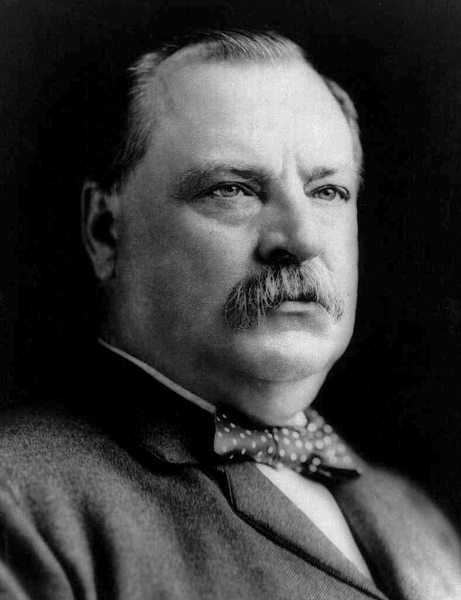1888-1892: Rise of Autocracy

Upon returning to the White House to continue administration of the nation, Lockwood gathered her economic department and discussed ways of weakening Russia and England without war. Throughout the next few years, trade with England and Russia would be phased out, and attention would be given to opportunities when trade embargoes could be made. This did little to hurt the American economy, although it did cause some instability as job sectors closed down.
The World Soccer Tournament was created in July 1889 (with most of the world saying, "What is sock-er?") in Chicago. One of the leading nations to join in on the world competition was Brazil. Needless to say, when soccer was introduced to Brazil, it would have looked something like this:
American forces moved into South Korea, a divided section of Asia not knowing whether to be Buddhist, Confucian, Japanese, Chinese, communist... American forces restored order, and constructed a democratic nation in its image. Korea would serve as a great relation in Asia in years to come.
By late 1889, the world began changing rapidly. With the increase of European colonization in Africa and the Pacific, and the underlying economic problems hitting select regions of the world,
autocracy began to rise. Lockwood's cabinet noted that English and Russian communism was not going away as planned, and France had developed an autocratic government as well. Italy and Japan, both having had large revolutions, had advanced technologically but at the cost of liberalism. Greece had recently regained its independence as well, and began strong ties with Italy. Italy quickly took command of its large, revolutionary military and took Libya. Ethiopia, a client state of the United States, had also had a large revolution, but with the authoritarian movements being quelled, all but the core of Ethiopia had fallen to outside influences. Somalia had been taken by Italian forces during the riots, and Kenya had been tamed by English forces. The large, Ethiopian ally seemed to wither away into nothing more than a burden.
American forces continued to be the world's reconstructers, with American forces giving larger territories to Mali, and Mongolia being reconstructed. Strangely, although Mongolia adored United States help, they refused to allow US troops to move through Mongolia.
Lockwood came into heavy opposition with isolationists in congress when she signed a defensive-pact with Mali. This was the first defensive pact since the Great War in which former president Gerrit Smith witnessed decades of war which evolved into the Finland Conflict.
As 1890 began developing, Lockwood's economic cabinet also began reducing inefficiencies in trade by reducing corporate-needed resource exports and increasing low-cost exports (such as fish for 1 gold). The economy, due to this, would skyrocket even through the recession to come...
By January 1890, after several years of European forces carving out territories into their land, the Turkish Empire collapsed. This caused a huge economic loss in the Americas, and lead to a brief recession (but Lockwood's policies brought it back, and allowed the economy to skyrocket). Lockwood sent a huge army to the Middle East to restore order: Two transport fleets filled with marines and infantry to Oman, one transport fleet filled with Malinese-War soldiers to Serbia, and several infantry divisions by plane to Iran.

The wars in the Middle East were the first wars massively reported by the invention of television. Lockwood began giving many speeches through the television; abandoning the radio.
July 1891, following troops landing in the Middle East for the first time, saw the rise of musical popular culture for the first time. Those, such as Al Bowlly, had their music sent on the battlefront, where soldiers would reminisce about days long gone and days to come through the silver lining...
Music was also exported. Argentina, a principle buyer of music from America, developed a new dance called the Tango from the jazz-derived music.
By January 1892, autocracy had taken a very strong hold of Japan. Old Japanese ways began phasing out, and industrial, methodical organization replaced it. Japan had the boldness to demand of the United States biological secrets to improve their food yield. After long consideration, Lockwood agreed to the secrets with the hopes that improved relations would allow military passage and eventual consideration of democracy; it didn't.
Meanwhile, American troops began running out of time in the Middle East. England had captured Kuwait, a large holder of oil, and French and Austrian forces began carving out Ottoman-Europe. On the plus side, the expansion of Austria gave them the necessary power to declare independence from France.
Nearing the end of her second term, Iraq and Oman were captured with barely any American casualties, as the new military-grade airplanes destroyed defenses and weakened riflemen without direct contact. Iraq and Oman were kept as military and corporate possessions, as the location could be useful in fighting Europe, Russia, and Britain, and the oil resources could prolong the American Golden Age. After marines stormed Oman, the long trek through the Saudi desert to Mecca began. Tehran was also captured by American forces, and was given to Iran as a gift. The city soon became prominent for its sea access and oil resources, and the Persian government moved the capital to the city in hopes of bringing stronger Iranian influence to the region.
Lockwood at the end of her second term, enduring a brief economic succession, managed to further improve the stability of the United States. (Again, disregard that it says collapsing. -22 is just barely unstable, almost just shaky). The economy was booming, foreign relations were improving, and the people back in the States were happier than ever.

 .
.




























